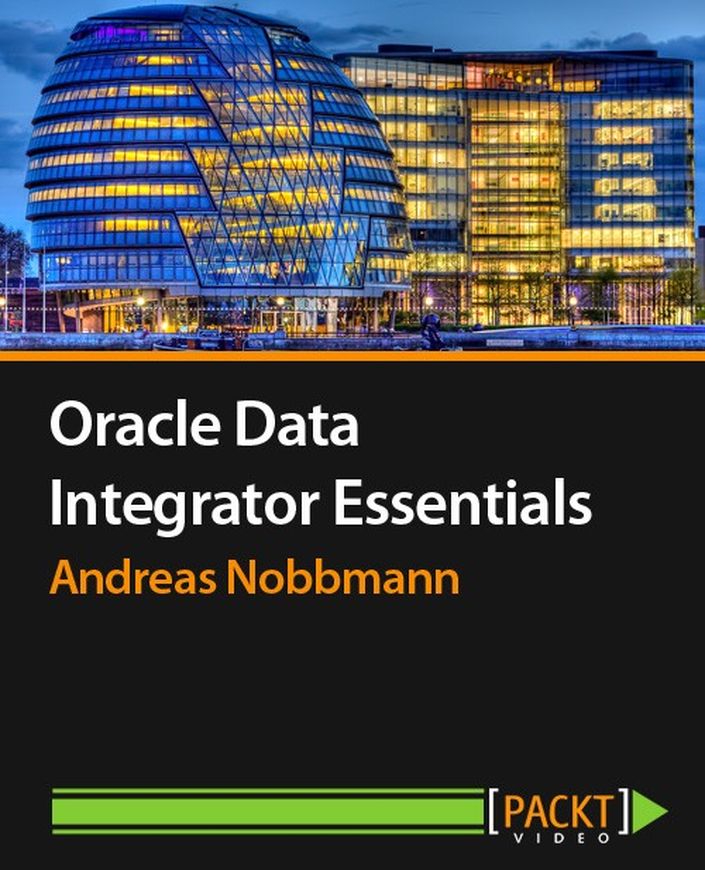Develop, deploy, and maintain your own data integration projects with a clear view of Oracle Data Integrator essentials and best practices
About This Video
Develop the necessary skills for effectively carrying out data integration and transformations in ODI interfaces
Understand the use of ODI development objects with methods and concepts illustrated from real projects
Master the key concepts of ODI’s physical and logical architecture and the use of Knowledge Modules and data models
In Detail
Oracle Data Integrator (ODI) is Oracle’s strategic tool covering all your data integration requirements. ODI lets you write custom code easily, extract data from source files, transform data in a staging area, and load this data to your target database. So, if you are a database administrator with an aim to effectively use ODI as a powerful tool for data integration solutions, it’s time you started making the most of it.
This video course will show you how to use ODI for your data transformation and integration projects. It will also provide you with valuable input on which methods to use for various ODI objects according to the situation, with examples based on real-life requirements.
Covering all the key ODI concepts, this video course shows you how to make the best use of ODI’s declarative approach to define your strategy with Knowledge Modules.
First, you are made familiar with the basics of ETL processes and then learn how to use of ODI development objects with the help of practical examples. You then move on to get an understanding of ODI’s transformation vehicles and its interface, followed by how ODI packages can be used to develop more workflow-based data integration tasks. Next we show you how reusable objects can be customized by using variables to suit your needs. The following sections broaden your understanding of topologies, scenarios, load plans, and data integration solutions.
By the end of the course, you will have enough knowledge of ODI, development, deployment, and maintenance techniques to give you the confidence to develop your own data integration projects.
